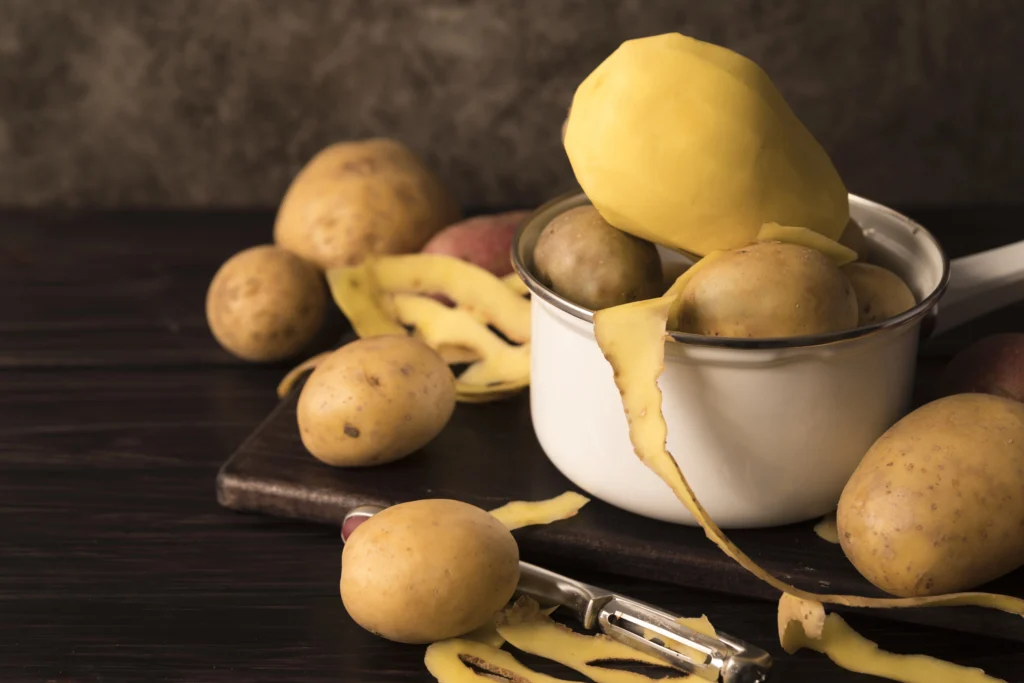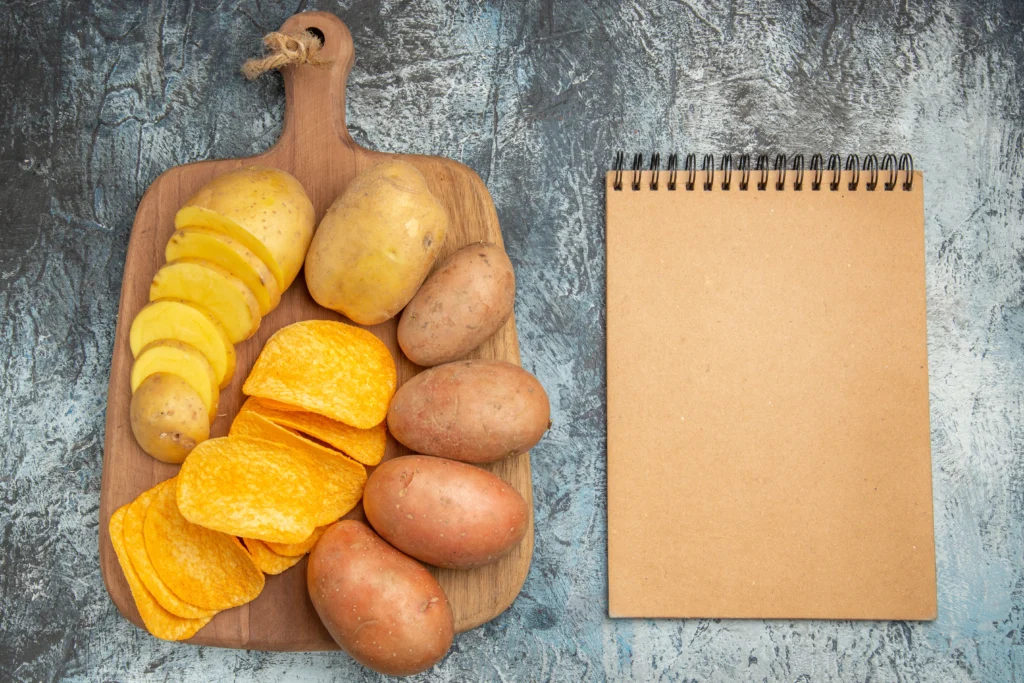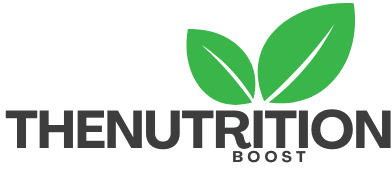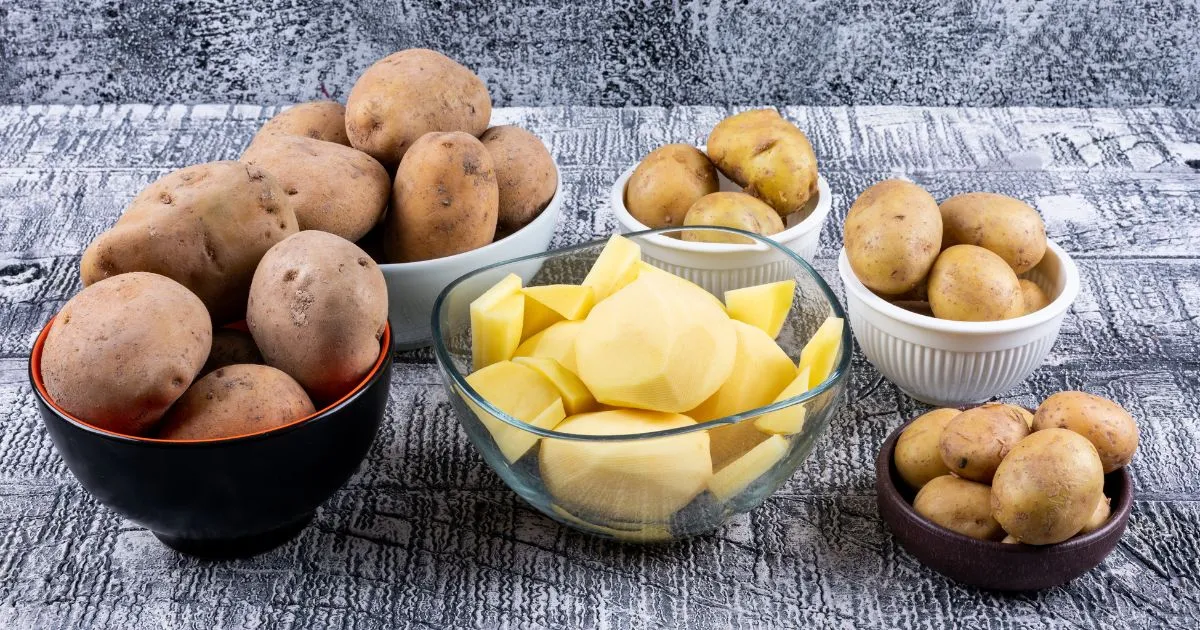Nutrients in Potatoes: Essential Vitamins and Minerals
Introduction: More Than Just Comfort Food; Nutrients in Potatoes
When you think of potatoes, you might picture a steaming plate of mashed potatoes, crispy fries, or a warm baked potato fresh out of the oven. But did you know that beyond their delicious taste, potatoes are loaded with vital nutrients that your body needs? Whether you enjoy them as part of a meal or a snack, potatoes provide essential vitamins and minerals that contribute to your overall well-being.
In this in-depth guide, you’ll discover exactly what makes potatoes a nutritional powerhouse, how they support your health, and the best ways to prepare them to maximize their benefits. By the end of this article, you’ll never look at potatoes the same way again!
Table of Contents
Nutritional Profile of Nutrients in Potatoes
Potatoes are often underestimated, but they are a fantastic source of energy and nutrition. Here’s a closer look at what they offer:
- Carbohydrates – Your body’s primary source of fuel, providing sustained energy.
- Dietary Fiber – Essential for digestion and gut health, especially when you eat the skin.
- Protein – A modest yet valuable amount of plant-based protein.
- Healthy Fats – Naturally low in fat, making them a heart-friendly food.
- Vitamins & Minerals – Packed with essential nutrients that your body craves.
Essential Vitamins in Potatoes


Vitamin C – The Immunity Booster
- Plays a crucial role in strengthening your immune system.
- Supports collagen production for healthier skin and wound healing.
- A single medium-sized potato provides nearly 30% of your daily vitamin C needs.
Vitamin B6 – Brain and Nervous System Support
- Supports neurotransmitter production, enhancing brain function and mood stability.
- Essential for breaking down proteins and carbohydrates.
- Helps regulate blood sugar levels.
Folate (Vitamin B9) – Essential for Cell Growth
- Crucial for pregnant women as it aids in fetal development.
- Supports DNA synthesis and red blood cell formation.
Essential Minerals in Potatoes
Potassium – The Heart-Healthy Mineral
- Helps regulate blood pressure by counteracting the effects of sodium.
- Aids in proper muscle function and nerve signaling.
- A medium potato has more potassium than a banana!
Magnesium – Bone and Muscle Health
- Strengthens bones and supports muscle relaxation.
- Helps maintain a steady heart rhythm and reduces inflammation.
Iron – Vital for Oxygen Transport
- Aids in the production of hemoglobin, which transports oxygen in your blood.
- Helps prevent fatigue and anemia.
Health Benefits of Including Potatoes in Your Diet
Eating potatoes the right way can bring a variety of health benefits:
- Boosts Immunity – Thanks to high vitamin C content.
- Supports Heart Health – Rich in potassium, which helps maintain normal blood pressure.
- Aids Digestion – The fiber in potato skins promotes gut health.
- Enhances Brain Function – Vitamin B6 supports cognitive performance and mental clarity.
- Provides Sustainable Energy – Complex carbohydrates keep you energized throughout the day.
How to Maximize the Nutritional Benefits of Potatoes
Cooking Methods Matter
The way you prepare potatoes affects their nutritional value. Here’s how you can retain the most nutrients:
- Baking – One of the best ways to preserve vitamins and minerals.
- Boiling – Some nutrients may leach into the water, but using the broth for soups can help retain them.
- Steaming – A great method for keeping most nutrients intact.
- Frying – While tasty, it adds unhealthy fats and calories, reducing health benefits.
Pairing with Healthy Ingredients
To get the most from your potatoes, pair them with nutrient-dense ingredients:
- Swap butter for olive oil to reduce saturated fat intake.
- Use fresh herbs and spices instead of excessive salt.
- Add vegetables and lean proteins to make a balanced meal.
Healthy Potato-Based Recipes
Nutrient-Packed Baked Potato Recipe
| Ingredient | Quantity |
|---|---|
| Medium potato | 1 |
| Olive oil | 1 tsp |
| Greek yogurt | 2 tbsp |
| Chopped chives | 1 tbsp |
| Shredded cheese | 2 tbsp |
| Salt & pepper | To taste |
Easy Mashed Potatoes with a Healthy Twist
| Ingredient | Quantity |
| Boiled potatoes | 2 medium |
| Garlic (minced) | 1 clove |
| Low-fat milk | 1/4 cup |
| Butter | 1 tsp |
| Parsley (chopped) | 1 tbsp |
Frequently Asked Questions (FAQs)
Are potatoes a good source of protein?
Potatoes contain small amounts of protein, but they are not a primary protein source. However, pairing them with beans, cheese, or lean meats can boost your protein intake.
Do potatoes lose nutrients when cooked?
Yes, certain cooking methods, like boiling, can cause nutrient loss. To retain the most vitamins and minerals, opt for baking, steaming, or roasting.
Are potatoes good for weight loss?
Yes, if eaten in moderation and prepared healthily. Avoid frying and opt for baked or steamed potatoes with nutrient-rich toppings.
What is the healthiest way to eat potatoes?
Baking or steaming with the skin on maximizes nutrient retention and fiber content.
Conclusion: Potatoes – A Nutritional Powerhouse
Now that you know just how beneficial potatoes can be, it’s time to start incorporating them into your meals in a healthier way. These humble tubers are packed with essential vitamins and minerals that support your immune system, heart health, digestion, and overall well-being. By preparing them using the right methods and combining them with other nutritious ingredients, you can enjoy all their benefits without guilt.
So next time you’re at the grocery store, don’t overlook the humble potato – it might just be the nutritional powerhouse you need! If you found this guide helpful, share it with your friends and family so they can make the most of this versatile and healthy food.

